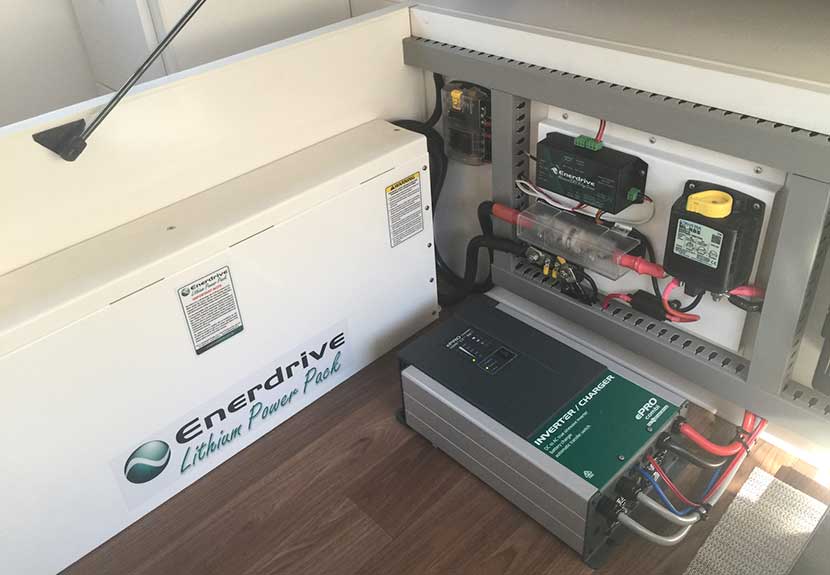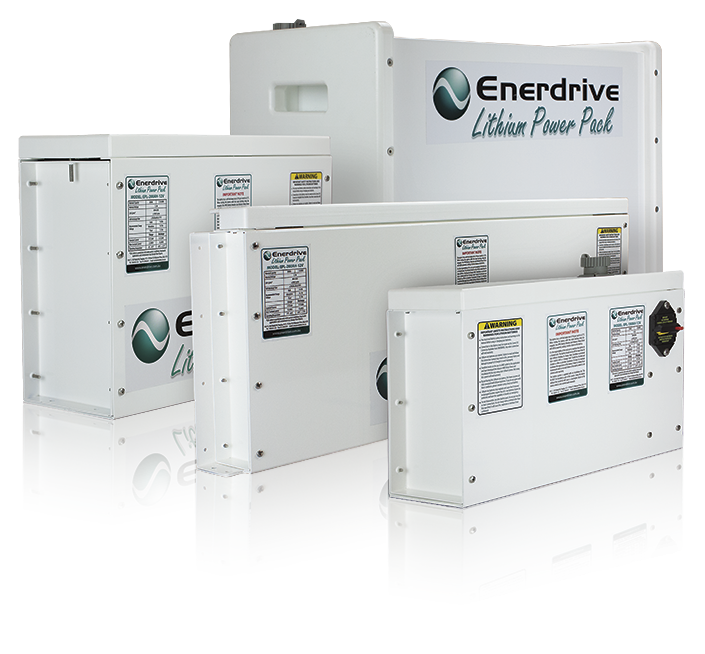But does your Caravan or RV really need a lightweight, super-efficient battery system?
We get many people inquiring about lithium batteries for their caravans, motorhomes and boats, but the big question is do they really need to switch to lithium over their current lead acid/AGM setup. It’s fair to say that we have probably talked more people out of lithium than into it and it basically comes down to how you answer a few simple questions.
Lithium batteries are a very expensive option to consider over lead acid batteries. To justify that cost it is imperative to ask the right questions, so you can make an informed decision about whether lithium is right for you.
In our view, the key benefits of lithium are:
- Weight saving
- Space saving
- Energy efficiency
- Performance
Yes, lithium batteries are smaller, lighter, recharge quicker and last longer than equivalent lead-acid batteries, but they still may not be a necessary purchase. In fact you could be needlessly outlaying extra money that could have been saved with a properly installed and component matched AGM based power system.
Like buying a camper or caravan, you need to be honest about your needs and then purchase accordingly. An extreme off-road vehicle is over-kill if you don’t plan to explore remote regions and stay away from mains power and facilities for more than a few days at a time.
YOU DON’T NEED LITHIUM IF …
You plan to travel from powered site to powered site spending more time on mains power than battery power and only have minimal 12v equipment, such as a compressor fridge, LED lights and a water pump.
The most common standard setup of one or two 100-120Ah lead acid batteries will generally allow you to free camp for 1-2 days at a time with just a minimal input from solar. People who have minimal DC equipment and are frugal with their DC consumption find they can free camp for many days when they have an average sized solar system installed. If you are one of these people then converting to lithium power would definitely be a waste of money.
If you want to extend the amount of time you can free camp then increasing your solar power by adding fixed or portable solar panels is probably the simplest and most cost-effective solution and has been tried and tested for many years. By putting your money towards additional solar power and maybe buying a small generator, to help charge the batteries on those cloudy days, you can achieve unlimited days of free camping.
To replace an existing battery bank with lithium batteries could initially cost you up to 2-3 times more than an equivalent lead acid/AGM battery bank and will require specific charging solutions that need to be controlled by a Battery Management System (BMS) system. Also existing charging sources like AC battery chargers, solar regulators, alternators and DC-DC chargers may not have the ability to be controlled or programmed correctly to suit the special requirements needed for lithium batteries and updating these items would add even more cost to the conversion of your system.
YOU MAY NEED LITHIUM IF …
- You need to reduce weight or have limited space for batteries in your installation.
- You plan to live off your battery system for more than four weeks a year with infrequent use of mains power.
- You want to regularly run a large (1000W-plus) inverter to power a range of domestic appliances away from mains power.
Let’s take an off-road caravan for example, which in today’s market, will most likely be fully optioned with things like an air conditioner, microwave oven, washing machine, perhaps satellite TV and will generally be fitted with a large inverter or inverter/charger.
People buy this type of van to spend large amounts of time ‘free camping’ away from mains power and owners will often add additional equipment like a coffee machine, hair dryer, toaster, electric kettle, etc…
Many carry a small generator with them for the times when poor weather conditions can’t keep the solar up to charge the batteries.
This setup is the perfect candidate for a lithium battery system, where high demand and quick re-charge times will be expected, but where space for a suitably sized lead acid battery bank to cope with these loads is not readily available.
One major factor to consider is the overall weight of the van. With a lithium battery system you will reduce the overall weight of your battery bank by as much as 40% when compared to a lead acid battery system of equivalent power. This could make the difference between having that extra creature comfort on the option list, or being able to carry more water for those more remote adventures.
Other big advantages of lithium batteries when compared to lead acid batteries are:-
- Re-charge time – Lead acid batteries have a charge efficiency of approx. 90-95%, while lithium batteries have a charge efficiency of nearly 100%. This means that you need to put 5-10% more power (amp-hours) back into a lead acid battery than you took out to fully charge it. Not only that, but it has to be done at a lower charge rate than lithium. All this ultimately means a longer charging time which, when regularly using a generator as your AC power source for charging, means more wear and tear and fuel consumption.
- Cycle Life – Typical life cycles for lithium batteries are generally about 3 times those of AGM batteries. The benefit is obvious there, but one additional benefit of lithium that sometimes gets overlooked and can also affect cycle life, is not having to worry about leaving them in a semi discharged state. This is something that can ruin lead acid batteries in a short space of time and is why it is important to always fully charge a lead acid battery straight away after discharge. Leaving lead acid batteries in a semi discharged state is one of the primary causes of premature battery failure.

It’s fairly common in the RV industry for manufacturers to lightly option on-board battery power as a way to keep costs down for the customer, but asking yourself a few prudent questions at the start about how you plan to use your investment and what you can or cannot live without can make a big difference to your overall experience and enjoyment of your new ‘home from home’. A little bit of extra money spent on the right additional components can turn a simple AGM power system into a high performance AGM system that will end up meeting your expectations. A new lithium battery system would be awesome, but a lead acid battery system, with a few extras could be all you really need!
We hope this has helped answer some questions about whether lithium is right for you or not. Please don’t hesitate to contact us to discuss if you’re still not sure.
